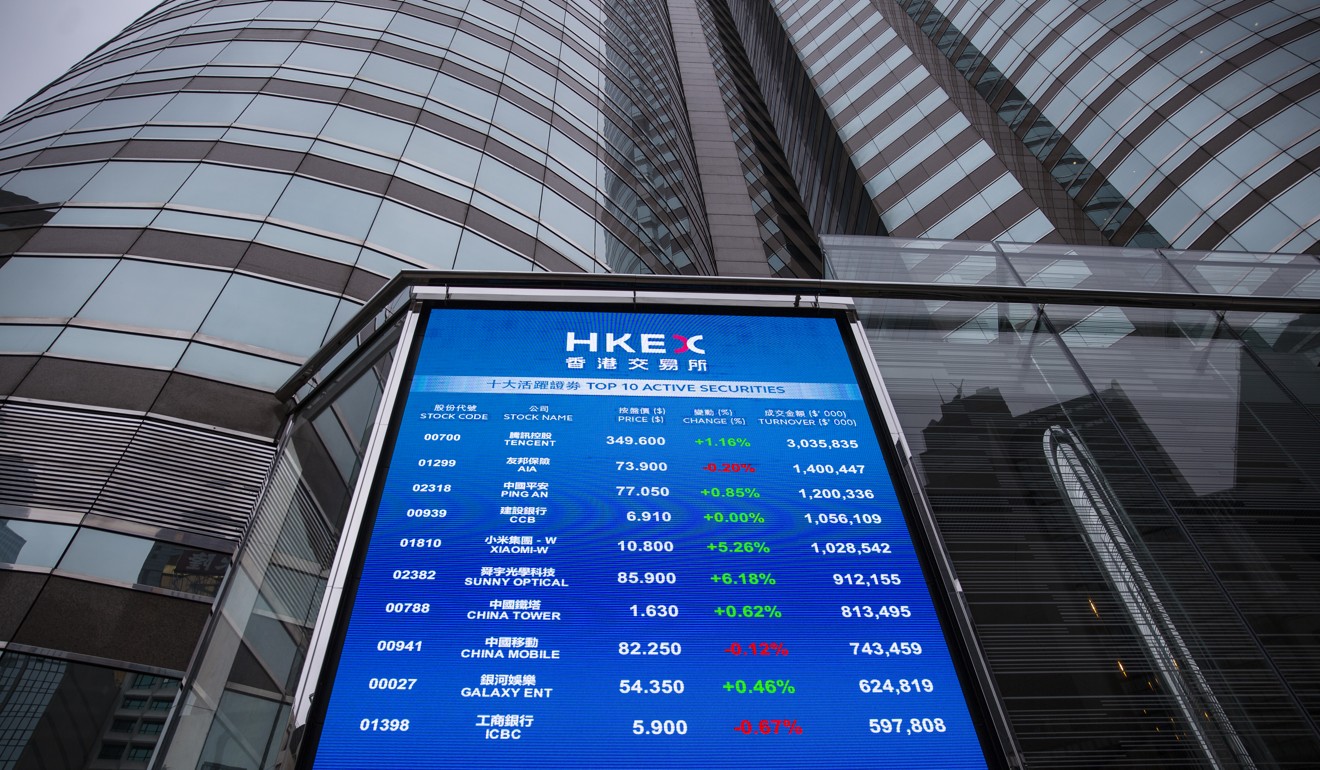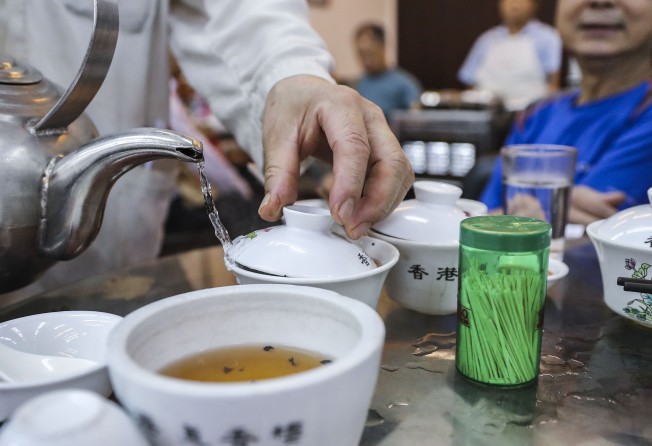
A tea maker called Blockchain Group?! Hong Kong firms fail to revive flagging stock market fortunes with far-fetched name changes
- Blockchain Group, a traditional tea manufacturer formerly known as Ping Shan Tea Group, is one of many whose name change has failed to impress investors
- Many Hong Kong-listed firms are changing their names to associate themselves with boom industries they have nothing to do with

What’s in a name? When it comes to Hong Kong-listed companies looking to boost their stock market performance by changing their name to something more fashionable, then not much, the evidence suggests.
It is a common tactic deployed by firms looking to revive their flagging fortunes and bolster their share price. The chosen name is often an attempt to attract investors by signalling a connection with a boom industry, in many cases one that bears no relationship at all to the company’s business.
The practice can easily backfire, sometimes raising an immediate red flag with would-be investors, according to analysts.
Dickie Wong, executive director of research at Kingston Financial Group, said some companies have changed their names several times to affiliate themselves with trending concepts, such as internet, finance, biotechnology or solar energy over the past 20 years.

A recent example of an apparently misguided name change was the rebranding of CCT Land Holdings to Greater Bay Area Investments Holdings, a move approved by shareholders on February 20.
If you change names too often, investors would already know there is something wrong with the company
The company’s Hong Kong-listed shares had traded below HK$1 since April 2000 and have remained unchanged at HK$0.01 since March 24, 2017. The change of name, first proposed on January 8, is yet to have any impact on the share price or the loss-making firm’s financial performance.
“Name changes will not improve share price performance in the long term, though it might attract speculation in the short term, because the fundamentals would not improve as a result”, said Wong,
CCT Land does at least has some involvement with projects in the Greater Bay Area, the government’s plan to create a thriving economic hub linking Hong Kong and Macau to nine neighbouring mainland Chinese cities.
The company announced on January 14 that it would cooperate with a couple of Shenzhen-based companies for a logistics project at Bantian Street in the city’s Longgang district and the restructuring of a warehouse project in the Qingshui River district. CCT Land, which is chaired by singer Juno Mak’s father Clement Mak Shiu-tong, declined to comment when contacted by the Post about its name change.
It is not the only firm to jump on the Greater Bay Area bandwagon.
A number of Chinese funds are planning to change their names to include the concept to boost their chances of getting approval from the government to invest in Hong Kong, which is one of the 11 cities in the area, said Hannah Jeong, senior director of valuation and advisory at consultancy Colliers.
At least CCT Land’s chosen new name bears some connection to its operations.
The same cannot be said of Blockchain Group which, until November 20, 2017, was known as the Ping Shan Tea Group – a maker of traditional teas, rather than a company specialising in the technology underpinning cryptocurrencies.
Notably, it did not have enough money to cover the costs of auditing when it entered liquidation last month and has seen the resignation of a number of directors. Its shares are currently suspended, having last traded at HK$0.091.
Another company attempting to hitch a ride with a big, high-profile development plan is E-Kong Group, which became Great Wall Belt and Road on June 5 last year.
The company owns a telecoms service provider called Zone in Hong Kong and Singapore, and only saw profit in three of the last 10 years.
But apart from Singapore and Hong Kong, the company does not have projects in any of the other dozens of countries covered by the “Belt and Road Initiative”, Beijing’s multibillion-dollar infrastructure investment programme.
Its shares have traded below HK$1 since July 2015 but have plunged further to between HK$0.255 and HK$0.35 since the change of name.
Great Wall Belt and Road, Blockchain Group and Hong Kong stock exchange could not be immediately reached for comment.
Adopting a more fashionable name to attract the attention of retail investors tends to have no meaningful impact on the share prices of listed companies, said Kot Hung-wan, assistant professor of finance at the University of Macau.
“Price changes due to name changes are not significant. Changes of prices mainly come from fundamental reasons like mergers and acquisitions,” said Kot, who has studied corporate name changes for many years ago and still keeps an eye on it.
“In my research, I showed some pure price effect can come from name changes, but in the real investment world, it is very difficult for retail investors to make a profit from it.”